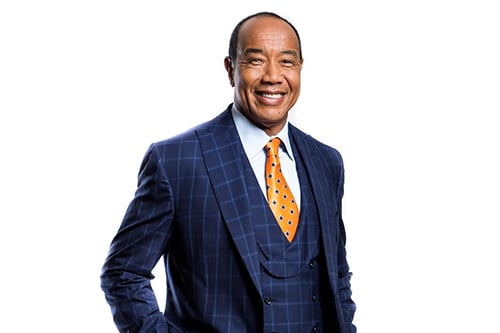Renowned investor and Mandeville CEO explains the three main challenges facing the industry

Michael Lee-Chin has given advisors a stark warning: do business today like you did five or 10 years ago and you will soon be irrelevant.
Speaking to WP Talk in part one of a three-part podcast series, the renowned advisor, investor and philanthropist, and CEO of financial planning firm Mandeville, said there are three major challenges facing advisors today.
Firstly, he questioned whether finance professionals were doing enough to counter the commoditization of the industry when almost all the products they sell can be bought cheaper on the internet. This problem is especially pertinent, he said, when investment information is so ubiquitous and the needs of clients increasingly reflect a complex world.
''We have to really start a conversation and come to some solutions or we’ll go the way of the dodo''
He said: “We, as advisors, need to focus on what clients really need, which is the opportunity to create wealth or to give the maximum value we can to enable a client to behave in such a way that is going to be wealth creating for them. Commoditization of the industry is a big problem. What are we really doing to really deliver an antidote as advisors?”
The second challenge, said Lee-Chin, is the prescriptive and formulaic regulatory environment. Rather than this restrictive approach, he believes there should be more acknowledgement that "no one size fits all" and that advisor need to educate their clients more.
Number three is at the core of Mandeville. The man who built and sold Berkshire and AIC for vast sums told WP the majority of products being sold to clients are not wealth creating and that there is an allergic reaction to having private securities in their portfolios.
“Everybody who created wealth started off owning a private business,” he said. “Only the most successful business gets promoted to the public markets and once they become a public company, the profile of the company becomes totally different from when it was private in the wealth-creating stage.
“There are many factors afoot, including asset allocation. An advisor’s typical client would have in his or her portfolio 100% publicly traded securities. Therefore, their typical client is missing out on the opportunity to take advantage of the illiquidity discount.”
Overall, the direction of an advisor is becoming more and more useless and irrelevant from the client’s perspective. Lee-Chin pointed to CPP and Ontario Teachers as examples of where the industry can gain guidance on assembling a portfolio mix of public and private. Yet, still, access and attitude means the average portfolio is primarily in public securities.
He added: “There are a lot of issues that we have to face, and we have to really start a conversation and come to some solutions or we’ll go the way of the dodo. In addition to that, it’s a margin grind. ETFs are setting the pace and being given away for free. When you look at all of those issues, we are a challenged industry in terms of relevance.”
It begs the question why is there not more of a drive towards incorporating private securities in portfolios? Lee-Chin believes it’s because of the perception that they are more risky, and given Mandeville’s known strategy and approach to this issue, it’s no surprise to hear him pick this view apart.
“When I buy a publicly traded security, I am basing my decision on the information that is given to me by the Investor Relations Department,” he said. “I don't have the opportunity really to go into the company and diligence the emails, diligence the lawsuits, diligence the budget and interview management as freely as I do when purchasing a private business.
“When I'm purchasing a private business, the entire data room is open to me: I can go and look at someone's emails; I can go and look at all the legal cases outstanding; I can look at the budget; I can look at board memoranda etc. We get more information when we diligence a private business than what is fed to us through the IR department in terms of your publicly traded securities.
To hear the full podcast episode click here.



